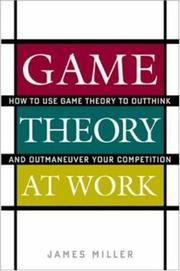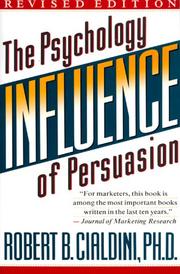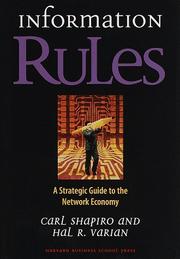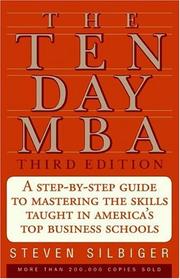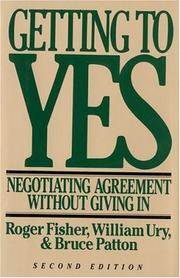Game Theory at Work : how to use game theory to outthink and outmaneuver your competition by James D. Miller - ISBN 0071400206 - McGraw-Hill 2003
Motivation
Learning more about game theory through a straightforward application.
Pre-reading model
Draw a schema (using PmGraphViz or another solution) of the situation of the area in the studied domain before having read the book.
Reading
- Core
- different configurations
- unique encounter (players play only one game)
- repeated encounters (players play more than one game)
- sequential games (players move one after the other)
- simultaneous games (players move at the same time)
- players must make their move while still ignorant of the move of others
- each side must predict what the other is up to
- coordination games (players share positive payoffs)
- communication is key
- positive outcome by being open, honest and trusting
- trust games (coordination game with a safe course)
- main risk : doubts
- example : strikes
- in mass coordination games
- network externalities are key
- once everyone has decided on a strategy, everyone benefits from continuing to play along
- everyone consumer tries to match the decisions of other buyers
- a product with network externalities and consumers believing it will become popular should become popular (p94)
- outguessing games (opposite have mutually exclusive payoffs)
- communication is impossible
- always gain by successfully spying your opponent
- hiding your moves is required
- spread false information
- negotiation are pointless
- hide, never trust, and always strive to deceive
- example : armies
- Nash Equilibria
- No player regrets his strategy, given everyone else′s move
- Fixed-sum games
- cooperation/negotiation is pointless as interests are diametrically opposed
- example : politicians
- Variable-sum games
- Prisoner′s dilemma
- all players ruthlessly ride their own self-interest to collective ruin
- BUT one goal
- tools
- increase your credibility
- cutting communication to increase credibility
- walking away after a final offer
- securing a reputation
- vengeance against negative behavior
- imply irrational desire for revenge if it can be beneficial (fear of perceived insanity)
- reducting your options
- sabotage your position to force you to move on
- ex: Cortez burning its boats close to Mexico against the Aztec
- advatanges
- proove your motivation to yourself and others
- delegating the decision ability and broadcasting it
- ex: lawyers and the treshold that their clients want
- chain of responsability
- more effective than
- random individual reponsability
- group responsability
- perceived value vs visible price
- clients compare what they can compare
- price is a simple numeric value
- features are difficult to compare
- price war are not sustainable
- prefer competition on quality, service, brand names or product colors, everything BUT prices
- if unable to compete, put complex pricing system to avoid direct price comparison
- self-selecting consumers
- Price discrimination based on needs
- use coupons or price rebate that requires some efforts
- provide premium services for consumers who favor high quality over price-sensitiveness
Note that those notes comes directly from the book. Each chapter provide end-notes called "Lessons learned" that summarizes the key aspects of each chapter.
- Chapter 2 - Threats, promises, and sequential games
- Fear only credible threats. Trust only credible promises.
- Being perceived as irrational can be advantageous.
- Worry about your payoff, not your opponent′s. Since profit maximization is the objective of business, you shouldon′t fret about asking more money than your rival.
- Unless you have a time machine, you should ignore sunk costs and not let them influence your moves because nothing you do in the future will save you from having paid the sunk costs in the past. The proverb, "It is no use crying over spilt milk," illustrates this lesson.
- Lowering your prices to deter potential competitors is an ineffective tactic because prices can be changed so easily.
- Chapter 3 - The dangers of price competition
- Firms have trouble profiting when they compete on price becaues price is very visible to consumers.
- To stop your rival from undercutting your price, your rival needs to believe that you will quickly respond to any price reduction.
- It′s almost impossible to restrict price competition among many firms that sell near identical goods.
- Interet retailers necessarily face massive competition because every other store that sells similar products is a rival.
- Complex pricing can reduce price competition by making it difficult for customers to comparison shop.
- Chapter 4 - Simultaneous games
- Looks to Interests (p82)
- To win, you must know what you are playing. Different games require different strategies. The game you′re in is determined by the alignment of the player′s interests, so when starting a new venture ask:
- Does everyone have the same objectives?
- Would other players benefit from lying to me about their strategy?
- Is the game fixed or variable sum?
- Do I want my opponent to guess my future moves?
- Am I better off being perceived as rational or crazy?
- A dominant strategy gives you a higer payoff than all other strategies regardless of what your opponent does.
- A strictly stupid strategy gives you a lower payoff than some other strategies regardless of what your opponent does.
- You should always play dominant strategies and never play strictly stupid strategies, and you should assume that your opponent will do the same.
- You should be open, honest, and trusting in coordination games.
- A small amount of doubt can make it impossible for two parties to trust each other.
- It′s useless to negotiate in outguessing games.
- In chicken games perception is reality, so you must do everything to convince your opponent that you are committed to the macho course.
- Chapter 5 - Massive coordination games
- Massive coordination games are often winner-take-all affairs.
- To win a massive coordination game, it′s often more important to be perceived as popular than as good.
- When playing a massive coordination game it′s a sound strategy to buy early popularity by selling your product at a loss.
- Chapter 6 - Nash equilibira
- A Nash equilibrium is an outcome where no player regrets his move given his opponent′s strategy.
- A Nash equilibrium is a powerful game theory tool because it shows when an outcome is stagble; it shows outcomes where no player want to change his strategy.
- When trying to move to a new equilibrium, you should consider if the new outcome could be a Nast equilibrium. If it′s not, then your new outcome is unstable and might be difficult to achieve.
- Seeing the movie "A Beautiful Mind" will not increase your knowledge of game theory.
- Chapter 7 - Prisoner′s dilemma
- In a prisoners′ dilemma game, competition will harm both players. The players would be better of if they worke together, but if the game is played one time, then self-interest will always force them into tuinous competition.
- In a repeated prisoners′ dilemma game, the players might be able to work togehter to achieve a good outcome. Hiden actions, short time horizons, and last period problemes might still make cooperation impossible, however.
- If your suppliers are charging you high prices, you could benefit from creating a prisoners′ dilemma.
- Chapter 8 - Adverse selection
- Adverse selection occurs when you attract those with whom you least want to interact.
- When you make offers to job applicants or customers, you should consider the type of person most likely to accept your offer. Will they be more likely than average to have undesirable traits?
- People desperate to interact with you are often the ones with whom you should least want to deal.
- Playing hard to get can overcome adverse selection by convincing others that you are not desperate and thus not undesirable.
- Adverse selection is caused by hidden information and so can be remedied by information acquisition.
- Chapter 9 - Surviving with limited information
- Book covers, college degrees, and brand names can be quick ways of signaling quality.
- When a player can′t lie, he can also can′t stay silent, for the sound of silence can be deafening.
- Placing people under pressure might cause them to be too honest for their own good.
- Lines can provide useful information about other′s beliefs and intenttions.
- Options can help solve "chicken and egg"-like coordination problems.
- You should take more risks if you have an implicit option.
- Chapter 10 - Price discrimination and other pricing strategies
- You should charge price-sensitive customers less than other buyers.
- To price discriminate, you need to find a mechanism to exclude some customers from discounts given to others.
- To price discriminate, you need to identify which customers are the most price sensitive or devise a mechanism by which price-sensitive customers self-select.
- You can′t use bundling to extend a monopoly, but you can use it to increase you profits by evening out how much different customers value your products.
- Chapter 11 - Holdups
- Holdup problems manifest themselves when you become artificially dependent on one person or organization to perform a task.
- Holdup problems can be mitigated by long-term contracts or second sourcing.
- Employees should be wary of developing skills that are highly company specific.
- Chapter 12 Spending Other Peoples Money
- An employee spending her companyís money has an incentive to spend the money in a way that benefits her, not her company.
- Bribing those who spend other peopleís money can be a cheap means to make sales.
- Companies need to employ appropriate safeguards to ensure that employees donít misallocate company funds. Many types of bribery are legal, so you canít rely upon fear of criminal prosecution to stop your employees from taking noncash bribes.
- Insurance creates incentives for people to take too many risks and spend too much money.
- To combat the negative incentive that insurance creates, insurance providers need to monitor, regulate, and carefully screen their customers.
- The people who most desire insurance are those to whom the insurance company would least like to sell.
- Chapter 13 Managing Employees
- Employees will always strive to maximize their own welfare, not yours.
- Paying employees based on their achievements maximizes their incentive to work but forces employees to take on lots of risk.
- Ideally you should compensate employees based on effort, not outcome; but effort is much harder to measure than achievement.
- Paying employees based on the performance of a large group creates incentives for workers to free ride on the efforts of others.
- Two people, or countries, can benefit from trade even if one is better at everything than the other.
- Chapter 14 Negotiations
- What you would get if negotiations fail often determines what you do get if negotiations succeed.
- A party who can make a take-it-or-leave-it offer can get the entire surplus from a transaction.
- Bringing other parties to your negotiations can radically alter the bargaining environment.
- Giving up control can enhance your negotiating position.
- Taking negotiations to the brink of failure can make credible a threat to do something that is not in your self-interest.
- Chapter 15 Auctions
- Auctions are useful for sellers because they automatically adjust the price based upon buyer interest.
- Auctions are most advantageous to those selling time-limited goods or services.
- In first price sealed-bid auctions, you should always bid less than what the good is worth to you.
- In honest second price sealed-bid auctions, if you know exactly how much the good is worth to you, then you should bid this amount.
- If you are not sure of the goodís value, you should beware of the winnerís curse, which holds that the winning buyer is often the buyer who most overvalued the good.
- Auctions can be used to allocate tasks among employees.
- Chapter 16 The Stock Market
- If someone freely gives you stock advice, ask why she canít get anyone to pay them for the information.
- Events affect stock prices when they are anticipated, not when they actually occur.
- Even short-term traders need to be concerned with the long-term prospects of stocks.
- To compensate investors for taking on risk, market forces cause stocks on average to pay higher returns than safe government bonds.
- Survivorship bias makes mutual fundsí past performances seem misleadingly impressive.
- Chapter 17 Further Readings and References
Notes up to chapter 12 come from  my mind mindmap, the last chapters are not in the mindmap.
my mind mindmap, the last chapters are not in the mindmap.
See also
- James D. Miller's blog, Adventures In Economics
- Economy
- Game Theory by Ben Polak, Open Yale Courses
- A game-theoretic interpretation of Marcel Mauss' ĎThe giftí by Robert Rider, The Social Science Journal 1998
- RAND according to Wikipedia
- "Numerous analytical techniques were invented at RAND, including aspects of dynamic programming, game theory, the Delphi method, linear programming, systems analysis, and exploratory modeling."
- Chronology of Game Theory by Paul Walker, 2005
- Algorithmic Game-Theory blog including the Cambridge University Press 2007 related book with its full version available online.
- reviews
Overall remarks and questions
Synthesis
So in the end, it was about X and was based on Y.
Critics
Point A, B and C are debatable because of e, f and j.
Vocabulary
(:new_vocabulary_start:)
new_word
(:new_vocabulary_end:)
Post-reading model
Draw a schema (using PmGraphViz or another solution) of the situation of the area in the studied domain after having read the book. Link it to the pre-reading model and align the two to help easy comparison.
Categories
Back to the Menu
Other read books linking to the GameTheoryAtWork page :
Back to the Menu
 Fabien Benetou's PIM
Fabien Benetou's PIM






